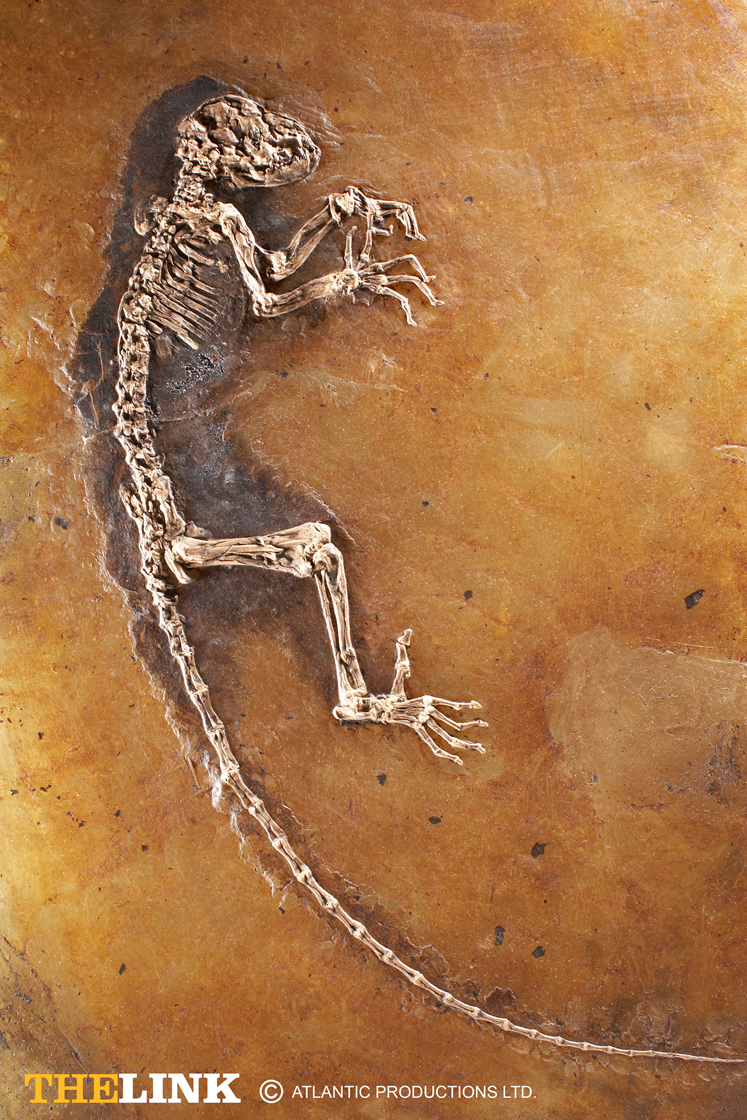The extraordinarily well preserved fossil of Darwinius masillae - nicknamed Ida - is being described by researchers as a "Rosetta stone" for understanding early primate evolution. Ida is a transitional form in the evolution of primates, coming just after the split between lemurs and monkeys.

One reason Ida is so special is her exquisite preservation, and that is because the Messel pit, near Darmstadt in Germany, is a very exceptional place. Forty-seven million years ago it was a volcanic lake surrounded by a steamy sub-tropical forest. Because of the unique conditions there, Messel – which is now designated a Unesco world heritage site – has yielded countless fabulous fossils including bats, pygmy horses, crocodiles and even insects with the colours on their wings still visible.
As usual, the Guardian has a tremendous amount of information on Ida, her discovery and acquisition, and her display on their website--which is where the picture and information here come from.

One reason Ida is so special is her exquisite preservation, and that is because the Messel pit, near Darmstadt in Germany, is a very exceptional place. Forty-seven million years ago it was a volcanic lake surrounded by a steamy sub-tropical forest. Because of the unique conditions there, Messel – which is now designated a Unesco world heritage site – has yielded countless fabulous fossils including bats, pygmy horses, crocodiles and even insects with the colours on their wings still visible.
As usual, the Guardian has a tremendous amount of information on Ida, her discovery and acquisition, and her display on their website--which is where the picture and information here come from.
Powered by ScribeFire.



No comments:
Post a Comment